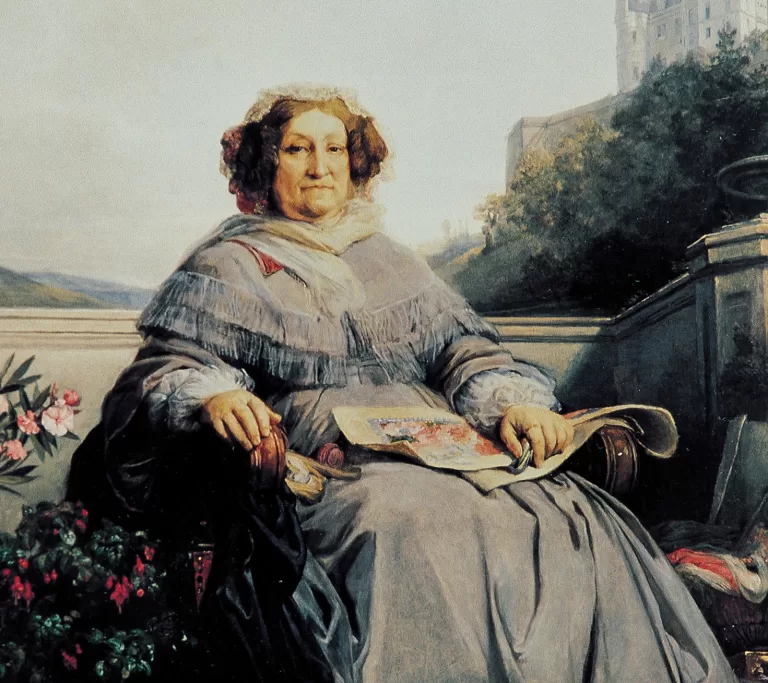The Grande Dame of Champagne
Madame Cliquot’s work is often present when we celebrate.
Born in 1777, Barbe-Nicole Clicquot is known as the “Grande Dame of Champagne.” Widowed from her husband Francois Clicquot at the age of 27, her legacy includes inventions that completely revolutionized the making of champagne, including vintage, the riddling table, and blended rosé champagne. Under her skill and ownership – a rarity for women of the early 19th century — she developed a technique for eliminating the opaqueness, or cloudiness, of champagne. The brand and company of Veuve (widow in French) Clicquot still bears her name.
Barbe-Nicole was the daughter of a wealthy father, Ponce Jean Nicolas Philippe Ponsardin, a textile manufacturer. Napoleon and Josephine both stayed at L’Hotel Ponsardin, her family’s home, and her father was made mayor of Reims by Napoleon’s decree. While she was wealthy by virtue of her well connected family, that doesn’t mean she was free to run a business; according to the Napoleonic code of 1804, that right was reserved to widows, who were permitted to manage their deceased husband’s enterprises, which in this case also included banking and wool trading. (Historians surmise that may be the reason she never remarried.) Under Madame Clicquot’s control, the house focused exclusively on champagne and thrived using funds supplied by her father-in-law.
Madame Clicquot’s notable achievement was the development of a novel technique called riddling. Prior to this invention the second fermentation of wine to create champagne resulted in a sweet wine with large bubbles and sediment from the remains of the yeast used in the fermentation in the bottle, resulting in a cloudy wine. She still used the original English technique of adding sugar, but after this second fermentation was complete, the bottles were held upside down, and were regularly turned so that the dead yeast would all gather near the cork (riddling). Once the settling was complete, the wine near the cork was removed, followed by an addition of wine to refill the bottle.
Clarifying champagne into something that appeared more appealing to drink is arguably her greatest contribution, but let’s not forget the rosé. While still rosé wines from Provence predate her innovation by several hundred years, it is widely accepted that Barbe-Nicole Clicquot was the mastermind behind sparkling rosé.
Not to be overlooked are her achievements as a female innovator in the Napoleonic era. Clearly, Barbe-Nicole took control of her own destiny and became one of the first modern entrepreneurs. In an era when women were excluded from the business world, she dared to assume the head of an important French company, a role she undertook with passion and determination. Call her an “early influencer” for future women wine-makers.
Her accomplishments have not been overlooked by contemporary media. In 2019, Lisette Glodowski and Richard C. Walter wrote a musical about her life, titled Madame Clicquot: A Revolutionary Musical. The cast recording of the musical was released in 2023, the same year the film Widow Clicquot premiered at the Toronto Film Festival, with a wide release in July of 2024. The film is “based on Tilar J. Mazzeo‘s New York times bestseller, The Widow Clicquot: The Story of a Champagne Empire and the Woman Who Ruled It.


